|
|
|
|
| | HOME | AUDIOLIBROS | AMOR | ERÓTICA | HUMOR | INFANTIL | MISTERIO | POESÍA | NO FICCIÓN | BILINGUAL | VIDEOLIBROS | NOVEDADES | | |||||||||||||||
|
|
|
|
|||||||||||||
|
|||||||||||||||
|
"The lady in the looking-glass" |
|
|---|---|
Biografía de Virginia Woolf en Wikipedia |
|
| The lady in the looking-glass |
People should not leave looking–glasses hanging in their rooms any more than they should leave open cheque books or letters confessing some hideous crime. One could not help looking, that summer afternoon, in the long glass that hung outside in the hall. Chance had so arranged it. From the depths of the sofa in the drawing–room one could see reflected in the Italian glass not only the marble–topped table opposite, but a stretch of the garden beyond. One could see a long grass path leading between banks of tall flowers until, slicing off an angle, the gold rim cut it off. The house was empty, and one felt, since one was the only person in the drawing–room, like one of those naturalists who, covered with grass and leaves, lie watching the shyest animals—badgers, otters, kingfishersmoving about freely, themselves unseen. The room that afternoon was full of such shy creatures, lights and shadows, curtains blowing, petals falling—things that never happen, so it seems, if someone is looking. The quiet old country room with its rugs and stone chimney pieces, its sunken book–cases and red and gold lacquer cabinets, was full of such nocturnal creatures. They came pirouetting across the floor, stepping delicately with high–lifted feet and spread tails and pecking allusive beaks as if they had been cranes or flocks of elegant flamingoes whose pink was faded, or peacocks whose trains were veiled with silver. And there were obscure flushes and darkenings too, as if a cuttlefish had suddenly suffused the air with purple; and the room had its passions and rages and envies and sorrows coming over it and clouding it, like a human being. Nothing stayed the same for two seconds together. But, outside, the looking–glass reflected the hall table, the sunflowers, the garden path so accurately and so fixedly that they seemed held there in their reality unescapably. It was a strange contrast—all changing here, all stillness there. One could not help looking from one to the other. Meanwhile, since all the doors and windows were open in the heat, there was a perpetual sighing and ceasing sound, the voice of the transient and the perishing, it seemed, coming and going like human breath, while in the looking–glass things had ceased to breathe and lay still in the trance of immortality. Half an hour ago the mistress of the house, Isabella Tyson, had gone down the grass path in her thin summer dress, carrying a basket, and had vanished, sliced off by the gilt rim of the looking–glass. She had gone presumably into the lower garden to pick flowers; or as it seemed more natural to suppose, to pick something light and fantastic and leafy and trailing, travellers’ joy, or one of those elegant sprays of convolvulus that twine round ugly walls and burst here and there into white and violet blossoms. She suggested the fantastic and the tremulous convolvulus rather than the upright aster, the starched zinnia, or her own burning roses alight like lamps on the straight posts of their rose trees. The comparison showed how very little, after all these years, one knew about her; for it is impossible that any woman of flesh and blood of fifty–five or sixty should be really a wreath or a tendril. Such comparisons are worse than idle and superficial—they are cruel even, for they come like the convolvulus itself trembling between one’s eyes and the truth. There must be truth; there must be a wall. Yet it was strange that after knowing her all these years one could not say what the truth about Isabella was; one still made up phrases like this about convolvulus and travellers’ joy. As for facts, it was a fact that she was a spinster; that she was rich; that she had bought this house and collected with her own hands—often in the most obscure corners of the world and at great risk from poisonous stings and Oriental diseases—the rugs, the chairs, the cabinets which now lived their nocturnal life before one’s eyes. Sometimes it seemed as if they knew more about her than we, who sat on them, wrote at them, and trod on them so care fully, were allowed to know. In each of these cabinets were many little drawers, and each almost certainly held letters, tied with bows of ribbon, sprinkled with sticks of lavender or rose leaves. For it was another fact—if facts were what one wanted—that Isabella had known many people, had had many friends; and thus if one had the audacity to open a drawer and read her letters, one would find the traces of many agitations, of appointments to meet, of upbraidings for not having met, long letters of intimacy and affection, violent letters of jealousy and reproach, terrible final words of parting—for all those interviews and assignations had led to nothing—that is, she had never married, and yet, judg ing from the mask–like indifference of her face, she had gone through twenty times more of passion and exper ience than those whose loves are trumpeted forth for all the world to hear. Under the stress of thinking about Isabella, her room became more shadowy and symbolic; the corners seemed darker, the legs of chairs and tables more spindly and hieroglyphic. Suddenly these reflections were ended violently—and yet without a sound. A large black form loomed into the looking–glass; blotted out everything, strewed the table with a packet of marble tablets veined with pink and grey, and was gone. But the picture was entirely altered. For the moment it was unrecognizable and irrational and entirely out of focus. One could not relate these tablets to any human purpose. And then by degrees some logical process set to work on them and began ordering and arranging them and bringing them into the fold of common experience. One realized at last that they were merely letters. The man had brought the post. There they lay on the marble–topped table, all dripping with light and colour at first and crude and unabsorbed. And then it was strange to see how they were drawn in and arranged and composed and made part of the picture and granted that stillness and immortality which the looking–glass conferred. They lay there invested with a new reality and significance and with a greater heaviness, too, as if it would have needed a chisel to dislodge them from the table. And, whether it was fancy or not, they seemed to have become not merely a handful of casual letters but to be tablets graven with eternal truth—if one could read them, one would know everything there was to be known about Isabella, yes, and about life, too. The pages inside those marble–looking envelopes must be cut deep and scored thick with meaning. Isabella would come in, and take them, one by one, very slowly, and open them, and read them carefully word by word, and then with a profound sigh of comprehension, as if she had seen to the bottom of everything, she would tear the envelopes to little bits and tie the letters together and lock the cabinet drawer in her determination to conceal what she did not wish to be known. The thought served as a challenge. Isabella did not wish to be known—but she should no longer escape. It was absurd, it was monstrous. If she concealed so much and knew so much one must prise her open with the first tool that came to hand—the imagination. One must fix one’s mind upon her at that very moment. One must fasten her down there. One must refuse to be put off any longer with sayings and doings such as the moment brought forth—with dinners and visits and polite conversations. One must put oneself in her shoes. If one took the phrase literally, it was easy to see the shoes in which she stood, down in the lower garden, at this moment. They were very narrow and long and fashionable—they were made of the softest and most flexible leather. Like everything she wore, they were exquisite. And she would be standing under the high hedge in the lower part of the garden, raising the scissors that were tied to her waist to cut some dead flower, some overgrown branch. The sun would beat down on her face, into her eyes; but no, at the critical moment a veil of cloud covered the sun, making the expression of her eyes doubtful—was it mocking or tender, brilliant or dull? One could only see the indeterminate outline of her rather faded, fine face looking at the sky. She was thinking, perhaps, that she must order a new net for the strawberries; that she must send flowers to Johnson’s widow; that it was time she drove over to see the Hippesleys in their new house. Those were the things she talked about at dinner certainly. But one was tired of the things that she talked about at dinner. It was her profounder state of being that one wanted to catch and turn to words, the state that is to the mind what breathing is to the body, what one calls happiness or unhappiness. At the mention of those words it became obvious, surely, that she must be happy. She was rich; she was distinguished; she had many friends; she travelled—she bought rugs in Turkey and blue pots in Persia. Avenues of pleasure radiated this way and that from where she stood with her scissors raised to cut the trembling branches while the lacy clouds veiled her face. Here with a quick movement of her scissors she snipped the spray of travellers’ joy and it fell to the ground. As it fell, surely some light came in too, surely one could penetrate a little farther into her being. Her mind then was filled with tenderness and regret. . .. To cut an overgrown branch saddened her because it had once lived, and life was dear to her. Yes, and at the same time the fall of the branch would suggest to her how she must die herself and all the futility and evanescence of things. And then again quickly catching this thought up, with her instant good sense, she thought life had treated her well; even if fall she must, it was to lie on the earth and moulder sweetly into the roots of violets. So she stood thinking. Without making any thought precise—for she was one of those reticent people whose minds hold their thoughts enmeshed in clouds of silence—she was filled with thoughts. Her mind was like her room, in which lights advanced and retreated, came pirouetting and stepping delicately, spread their tails, pecked their way; and then her whole being was suffused, like the room again, with a cloud of some profound knowledge, some unspoken regret, and then she was full of locked drawers, stuffed with letters, like her cabinets. To talk of “prising her open” as if she were an oyster, to use any but the finest and subtlest and most pliable tools upon her was impious and absurd. One must imagine—here was she in the looking–glass. It made one start. She was so far off at first that one could not see her clearly. She came lingering and pausing, here straightening a rose, there lifting a pink to smell it, but she never stopped; and all the time she became larger and larger in the looking–glass, more and more completely the person into whose mind one had been trying to penetrate. One verified her by degrees—fitted the qualities one had discovered into this visible body. There were her grey–green dress, and her long shoes, her basket, and something sparkling at her throat. She came so gradually that she did not seem to derange the pattern in the glass, but only to bring in some new element which gently moved and altered the other objects as if asking them, courteously, to make room for her. And the letters and the table and the grass walk and the sunflowers which had been waiting in the looking–glass separated and opened out so that she might be received among them. At last there she was, in the hall. She stopped dead. She stood by the table. She stood perfectly still. At once the lookingglass began to pour over her a light that seemed to fix her; that seemed like some acid to bite off the unessential and superficial and to leave only the truth. It was an enthralling spectacle. Everything dropped from her—clouds, dress, basket, diamond—all that one had called the creeper and convolvulus. Here was the hard wall beneath. Here was the woman herself. She stood naked in that pitiless light. And there was nothing. Isabella was perfectly empty. She had no thoughts. She had no friends. She cared for nobody. As for her letters, they were all bills. Look, as she stood there, old and angular, veined and lined, with her high nose and her wrinkled neck, she did not even trouble to open them. People should not leave looking–glasses hanging in their rooms. |
||
|
|
|
AUTORES RECOMENDADOS |
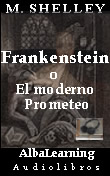 |
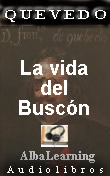 |
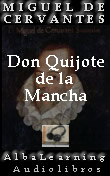 |
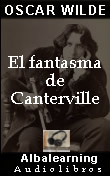 |
 |
 |
 |
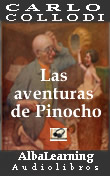 |
|
¿Cómo descargar los audiolibros? Síganos en: |
|
||
|---|---|---|---|
|
©2021 AlbaLearning (All rights reserved) |
|---|